I don’t want to be called queer. I know as well as anyone else the sting that queer delivers when used as a homophobic slur.
Here at Lesbian and Gay News, queer has been given a good kicking – and it’s a bugbear over at the LGB Alliance too. I respect the anger that many LGB people feel about the word – especially when it is used to describe us without our consent, recruiting us to a divisive politics we do not support.
Mainstream organisations and political figures now use queer freely. English Heritage’s approach is typical; ‘we know that for some it has negative associations, but the Oxford English Dictionary reports that from the late 1980s, ‘queer’ started to be reclaimed as a neutral or positive term. It is now used to capture the complexity and fluidity of sexuality and gender, with the intention of including all experiences and identities rather than defining and limiting them. It is in that spirit of inclusivity that we use the term…’.
Well, English Heritage, you can claim to be using it in whatever spirit you want, but that doesn’t change the fact that it is a word which many find offensive and alienating. Don’t presume to teach us what you think we should think about it.
This applies to every mainstream, non-gay or lesbian organisation using or considering using the word queer: I know terminology is a nightmare and a single, neutral word which could be applied to everyone would be really useful for you, but queer is not that word.
That out of the way, I am here to stick up for queer.
One of the things I dislike most about today’s Stonewalled queer politics is how ignorant it tends to be of gay and lesbian cultural history and how eager it is to overwrite the past with its version of identity politics.
The original reclamation of queer cannot be separated from the AIDS crisis – the period from the early 1980s to the late 1990s before effective antiretrovirals, when the virus was a death sentence. To understand why queer was reclaimed we have to imagine something of what it was like for the people trapped within that nightmare, whose lives were shaped and often brutally shortened by it.
The original reclamation of queer cannot be separated from the AIDS crisis – the period from the early 1980s to the late 1990s before effective antiretrovirals, when the virus was a death sentence.
We are just over a year and a half into the Covid-19 pandemic and a huge amount has happened. The first vaccine was approved for use in the UK just over one year after the first cases were reported in China. Covid-19 has been treated as an emergency – yes, we could argue about all the government’s failures and missteps, but overwhelmingly, and worldwide, Covid-19 has been treated as an urgent situation.
Now imagine the opposite.
In March 1981 reports emerge of a rare kind of pneumonia killing young gay men in Los Angeles and New York. The New York Native, then the city’s main gay publication, reports this in May. In June the Center for Disease Control and Prevention (CDC) publishes its first warning. In July, The New York Times prints a report on page 20: ‘RARE CANCER SEEN IN 41 HOMOSEXUALS’. It would take almost two more years and six hundred deaths for The Times to put AIDS on its front page.
Although my focus here is AIDS’ defining impact upon the gay community, this is only one part of the story of AIDS. The first cases were a mixture of white gay men, mostly young, alongside gay and straight Black men, and several Black children.
The mainstream media and the government were indifferent, but within the gay community itself awareness was stirring. In Autumn 1981, writer Larry Kramer hosted a meeting of eighty men in his apartment out of which, the next year, the AIDS service provider Gay Men’s Health Crisis (GMHC) was born.
Kramer was famously passionate and confrontational, so much so that GMHC ousted him in 1983. Two years later, Kramer’s play The Normal Heart spilled the beans about what happened, laying bare a tension which often exists in activist organisations between those who want to work quietly behind the scenes and those who want to make a public stink. In 1987, Kramer founded ACT UP – more radical and noisy than the careful, consensual GMHC.
This divide between the well-behaved gays and the trouble-causers played out through the 1980s and into the 90s, and not just in the USA; Stonewall and Peter Tatchell’s Outrage! mirrored this dynamic in the UK.
But by 1991 there were still no effective drugs, and politicians and the mainstream media still didn’t seem to care about dying gays. In the UK, we also had Section 28.
How can those of us who were not there (including me) possibly imagine what this felt like? I was 21 in 1991, closeted and ignorant. I discovered the story of AIDS much later, when I was diagnosed HIV+ aged 32. So I claim no first-hand experience of the AIDS crisis. I was alive, but I was not there. But I have tried to imagine myself there, and wondered what I would have done – whether I would have had the courage to be part of something like ACT UP. I don’t know.
To get a sense of those times, of the frustration and fear, listen to Larry Kramer exploding into anger at a 1991 meeting – his famous ‘plague’ speech.
This is the background to the re-emergence of queer.
Queer was reclaimed by a section of the gay community who were compelled to respond both to a homophobic society and what they saw as the apathy of the rest of the gay community.
It was the founding of Queer Nation in March 1990 which pushed queer into the limelight. A younger and more confrontational offshoot of Kramer’s ACT UP, Queer Nation burned brightly and was all over in less than two years. One of their earliest and typically controversial acts was the distribution at New York Pride of a leaflet titled QUEERS READ THIS. Here’s how it begins:
How can I tell you. How can I convince you, brother, sister that your life is in danger: That everyday you wake up alive, relatively happy, and a functioning human being, you are committing a rebellious act. You as an alive and functioning queer are a revolutionary. There is nothing on this planet that validates, protects or encourages your existence. It is a miracle you are standing here reading these words. You should by all rights be dead. Don’t be fooled, straight people own the world and the only reason you have been spared is you’re smart, lucky or a fighter.
Queer was reclaimed by a section of the gay community who were compelled to respond both to a homophobic society and what they saw as the apathy of the rest of the gay community. Similar leaflets were distributed in London. The reclaimers of queer took a risk in trying to shock a much larger group into taking the always-intertwined combination of AIDS and homophobia deadly seriously. Queer was decidedly ours and no-one else’s, a vital shot of ‘fuck you’ adrenalin into the bloodstream of polite, assimilationist, ‘please-may-we’ activism.
Above all, queer was a response to an emergency.
What does any of this have to do with today?
Today’s use of queer enrages me not because it is a continuation of the 1990’s reclamation (it isn’t) but because it sucks the anger and the sex out of 1990s queer, erasing the history – the people – from which that reclamation emerged. Today’s use of queer dishonours the struggles of those who fought AIDS and indifference in the 80s and 90s.
I hope that while we oppose today’s use of queer, we can also acknowledge why it was reclaimed and who did the reclaiming. No matter how much the the contemporary use of queer angers us, let’s not blame the past for the errors of today.
If you hate queer with every atom of your body and wish it had never been reclaimed at all, please at least try to empathise with the people who felt it was what they needed to survive. Give them the benefit of the doubt and perhaps take a moment to reflect on what they achieved, what they endured, and what they lost.
Jonny Best is a writer, arts producer, musician, and researcher. He is also the former Artistic Director of Queer Up North International Festival.



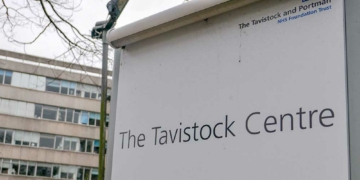
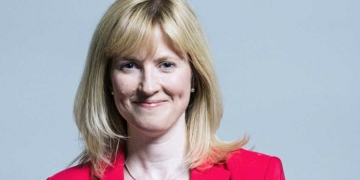
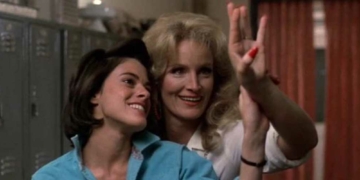











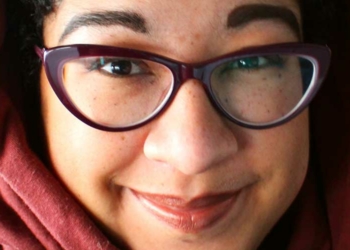
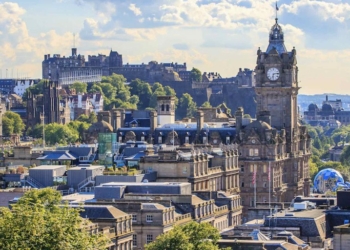




I also think there’s a much more interesting thing happening in relation to the reclamation of ‘queer’ today. The current obsession with self identify politics has come at the expense of 'community', and the things that bound us together. Younger people seem to crave that radical outlet, with almost a romanticised view of the past. They talk about the Stonewall riot like it was central to gay liberation, have revived ACT UP with tenuous links to health and no sense of urgency, and are even reclaiming pride from its over commercialisation, whilst ironically waving a new version of the rainbow flag which is subject to copyright restrictions. It feels like activism without thought leading to unintentional conflict, and using the ‘paradox of tolerance’ to shut down any subsequent debate.
DC, my anger was directed at the lack of action within the gay community as much as anyone else. If people objected to a word but did nothing about what was happening then it opened up dialogue. ‘Gay’ was already being turned into a slur by the media because of the AIDS crisis, ‘gay-bashing’ or ‘queer-bashing’…it was the same thing and you could point out the correlation. I’m not comparing the word to genocide, the pink triangle reference was an illustrative example of how words and symbols can be subverted to act as reminders of our oppression. Queer has lost its contextual power…it’s now like the word straight, the etymology of which is rooted in the gay community and was ‘imposed’ on them. 'Straight' arguably has a perceptive reflection on us too (straight/bent), but is less obvious.
So . . . it reflected anger, but anger at whom? And just how do Gay people "reclaim" a word that they didn't choose, that was imposed on them? I can't figure out what you're trying to say. The Q-word is in no way comparable to the pink triangle, which is a symbol of Gay genocide. I've never known pink triangles to be brandished casually like this slur; they're displayed to remind people of what our kind had to endure. And not caring about the q-word "either way"? That makes about as much sense as not caring about the n-word "either way". It's part of our oppression; we must care about it! Bloodstained hate speech shouldn't be like some fashionable muffler that we can choose to wear or leave hanging in the closet according to whim.
There is no redeeming quality in the Q-word when it's applied to human beings, none! It does not empower the oppressed, much as people have fooled themselves into thinking it does. It fetishizes. It stigmatizes. It objectifies. It distorts reality and it reinforces ignorance! Over my six decades on this earth, I've noticed that radical types tend to live in their own Private Idaho, where sour becomes sweet just because a group of like-minded people agree on it. Fuck reality! I see no sunlight between those who want to label sex and gender-diverse people "queers" and those who want to redefine sex and gender as "fluid". They're all smug elitists, bent on forcing their particular worldview down everyone else's throat.
Kel, I reject the idea that "Gay" can ever be turned into a slur. It was, and is, spoken disparagingly just like "Black" or "Mexican" or "woman" can have a disparaging tone; but that doesn't mean it's "become" a slur. You can't equate "Gay" with a loaded term like "queer". Also, from what you're saying, it sounds like radicals aimed the Q-word at the Gay community! If so, that was a pretty nasty thing to do to one's own people. I remember radical anger being directed at the political and medical establishment which turned its back on us. This is the first I've heard of anger targeting Gay communities. We were dying, we were being demonized; we surely didn't need more abuse. And that's the only power the Q-word has ever had when applied to us: The power to abuse!
I completely agree with you. I remember it well in the 80s (days of clause 28 in the UK). A horrible word and, like you, if I have to mention it, it's always as the Q-word.
This article really resonated with me. I'm HIV+ and was one of the first AIDS activists to be arrested on an ACT UP demo in the UK. The word ‘queer’ definitely reflected my anger back then, but its reclamation wasn't without thought. Like the pink triangle, I knew its dark history, and at a time when gangs of straight lads viewed ‘queer bashing’ as a recreational sport, I was conscious that for many, especially those subjected to extreme violence, ‘queer’ was very often the last word of hate that some people had heard on this earth. I don't particularly care about the word queer either way now, but I do object to lesbian and gay being redefined as a 'gender based attraction'. That's not what we fought for in an environment of hostility and hatred.
I must say one more thing. It's not a matter of the way the word is used! It's not a matter of who is using it! It's that the word is used to sum up what LesBiGay people are, and it is false. It was always false, regardless of whether others applied it to us or we applied it to ourselves. I don't know if we can ever break the habit of calling ourselves queers, n*ggers, d*kes, etcetera. These fucking false identities! There's a deep well of self-destructiveness in human beings, especially those who are marginalized and oppressed. If only we could realize that the worst thing our enemies do to us is what they make us do to ourselves! The great Black historian Carter G. Woodson had insights about the phenomenon of internalized oppression that LGB folk would do well to heed.
I lived through the Eighties, too. The Q-word certainly did not, and does not, shock the people whose antecedents invented it to dehumanize us. I object to and reject this attempt to confer nobility on a lob of spittle! That's what such words will always be, whether it's Black folks "reclaiming" n*gger, Mexican-Americans "reclaiming" w*tback or even Lesbians "reclaiming" d*ke. However noble the justification for hugging venomous serpents to your bosom, the result is still a transfer of poison to the bloodstream. Were we born with poison on our tongues? No, we weren't. So how the fuck could we ever "reclaim" it? What was never yours cannot be reclaimed; and lest we forget, "the master's tools will never dismantle the master's house".